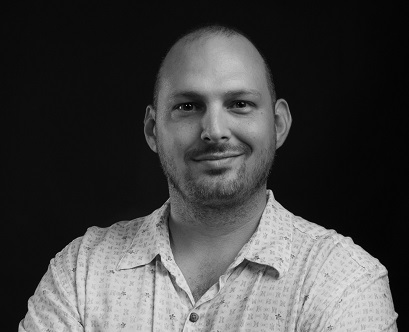What’s your favorite part about living in Budapest?
I love Budapest because it’s a city where you will never be bored! The Danube dominates and divides the city into Buda and Pest sides. It is a mix of ancient and modern, traditional and progressive. In Budapest, you can find Roman amphitheater ruins larger than the Colosseum. You can relax in one of the world’s few still-functioning original Turkish baths. You can follow the course of history through all architectural styles. If you like, you can go to the beautiful Opera house or enjoy a jazz concert on a boat. Meet your friends at one of the ruin bars, or run a few miles in the green heart of the city on Margaret Island. You can grow your food in one of the community gardens or simply do the shopping in the old market hall. You can eat at one of the Michelin star restaurants or hike in the Buda hills and cook your Goulash outdoors. And on the way, you might bump into some Hollywood stars enjoying some free time in the city as Budapest is one of the most popular spots for A-list stars of Hollywood movies -- Harrison Ford, Jared Leto, Robert de Niro, Brad Pitt, Angelina Jolie just to list some. And, naturally, Tom Hanks:.png)
Why is it a great place to study abroad?
Quality of Education
Hungarians have always been on the frontline of science and education. With Nobel laureates, numerous inventors and scientists, they have laid a solid foundation for high-quality education in Hungary and lots of brilliant professors are teaching our students.
Affordable price
Hungary is very affordable, especially for students coming from the U.S. A monthly city pass for students costs approximately $18 USD, a nice three-course lunch at a student canteen might be $5 USD -- just to mention a few. Hungary uses Hungarian forints instead of EUR, which means that USD buying power is much stronger in HUF. Within a year, the USD became 10% stronger, meaning that if you come to study in Budapest you can save 10% on the original amount you planned to spend here. Or, spending the same amount, you will be able to afford more activities or field trips.
Great location and transportation
Budapest is safe and has a very efficient public transportation system, which you’ve likely never experienced in the U.S. You can get anywhere by public transportation using buses, metro, tram, trolley or even boats. And if you had enough of Budapest or just want to visit Paris, Florence, London or any other European city, from Budapest you’ll get there in 1 or a maximum of 2 hours by plane. Vienna is just 2 hours by train for a $20 USD return ticket. So, if you want to discover Europe, Budapest is your best point of departure. Staying here is cheap, and many low-cost airlines offer bargain prices to hundreds of destinations.
Tell us a bit about your background and your role with CEA in Budapest.
 I have been working in international education since my university days. I graduated in History and Communication Science and did my study abroad semester in Sicily. Once you get a taste of a different culture and new horizons open up, there is no way to return. The beauty is not only in meeting something new and different, but also in comparing end re-defining your own identity/culture. I soon volunteered as an Erasmus+ assistant at my university to facilitate the life of incoming exchange students and help them discover the many facets of this beautiful country. Soon I was offered a full-time position with expanded responsibilities. This is where I’ve learned every aspect of an international office and study abroad programs. Then, I worked at Balassi Institute, helping Hungarian students to broaden their horizons through exchange programs, at CIEE coordinated and internship program for Hungarians in the U.S., and worked with U.S. students to find them placements in Hungary. Currently, I hold a position at Budapest Metropolitan University, the largest private university in Hungary, mainly responsible for EU tenders, overseas exchange, and partnership programs. I was very excited to join CEA as the new Budapest Program Director and look forward to helping our current and future students to discover this wonderful city.
I have been working in international education since my university days. I graduated in History and Communication Science and did my study abroad semester in Sicily. Once you get a taste of a different culture and new horizons open up, there is no way to return. The beauty is not only in meeting something new and different, but also in comparing end re-defining your own identity/culture. I soon volunteered as an Erasmus+ assistant at my university to facilitate the life of incoming exchange students and help them discover the many facets of this beautiful country. Soon I was offered a full-time position with expanded responsibilities. This is where I’ve learned every aspect of an international office and study abroad programs. Then, I worked at Balassi Institute, helping Hungarian students to broaden their horizons through exchange programs, at CIEE coordinated and internship program for Hungarians in the U.S., and worked with U.S. students to find them placements in Hungary. Currently, I hold a position at Budapest Metropolitan University, the largest private university in Hungary, mainly responsible for EU tenders, overseas exchange, and partnership programs. I was very excited to join CEA as the new Budapest Program Director and look forward to helping our current and future students to discover this wonderful city.
What are you most looking forward to having CEA students experience in Budapest?
Sunset over the Danube. A concert in the opera house. Shopping at the great market hall in Hungarian. Sitting in an outdoor thermal pool while snowing. Hiking in the Buda hills. I hope they will make some Hungarian friends on the way, expand their horizons and bring great memories home with them.
What’s a commonly unknown fact about Budapest?
Budapest has more thermal springs than any other capital on the globe. The Dohány Street Synagogue is the largest in Europe and the second-largest on the globe. The Parliament building is the third-largest parliament in the world. Budapest has the oldest subway line in continental Europe, built in 1896. With around 400,000 visitors every year, Budapest is home to one of the largest music festivals on the globe: Sziget.
What is an important part of the history/culture that you find students aren’t aware of before they arrive in Budapest?
International students are usually quite surprised to learn that Hungary has more than 1,000 years of history or that Hungarian is a very unique language and has no common roots with the neighboring countries. A bit more than 30 years ago during the communist regime, people stood in line to buy bananas, as they was very rare and there was no big selection of goods in the stores (and there were no supermarkets).
What might appear to be the most challenging aspect of life in Budapest for students to adjust to, and how do they overcome the difficulty?
Everything is smaller, and although in Budapest and especially in the touristy areas people do speak English, they still might have difficulties communicating outside university premises. Even though there is an image of Hungarian being one of the most difficult languages to learn, I fully disagree. I organized more than 10 intensive Hungarian language courses for all nationalities, and they all managed to learn the basics. So, I encourage our students to take Hungarian as an elective, or we can organize a survival course at the beginning of their stay focusing on practicalities.
Anything else you’d like to add about CEA’s new Budapest programs or the student experience there?
You're going to fall in love with Budapest and will want to return, so only consider this destination if you are ready for a life-changing experience!












